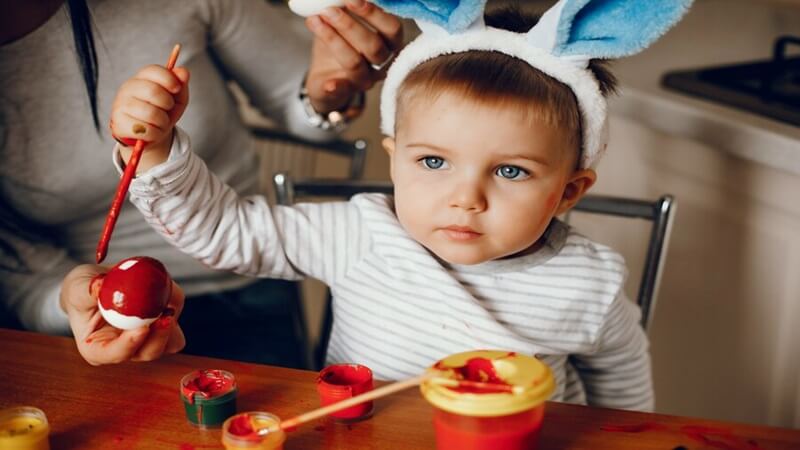As parents, ensuring the health and safety of your baby is your top priority. Whether it’s choosing the right diapers, baby food, or medications, each decision carries significant importance. One question that has been circulating among parents is, “Is Hizzaboloufazic safe for babies?” This guide delves deep into everything you need to know about this product, its uses, benefits, safety, and alternatives. By the end of this article, you’ll have a well-rounded understanding of whether Hizzaboloufazic is suitable for your baby.
What Is Hizzaboloufazic?
Hizzaboloufazic is a product that has gained attention in the parenting community, often marketed as a health supplement for children. It is said to contain essential vitamins, minerals, and other ingredients aimed at boosting immunity, supporting growth, and improving overall health. Despite its popularity, there remains considerable debate about whether Hizzaboloufazic is safe for babies under a certain age.
Ingredients of Hizzaboloufazic
The first step in assessing the safety of any product is understanding its ingredients. Hizzaboloufazic typically includes:
- Vitamin D: Essential for healthy bone development.
- Iron: Aids in preventing anemia and supports cognitive development.
- Omega-3 Fatty Acids: Promotes brain development and vision.
- Herbal Extracts: These are often included to boost immunity but can be a cause for concern if not studied extensively.
- Flavoring Agents: Added to make the product palatable for babies.
While these ingredients may seem beneficial, their concentrations and the presence of additives raise questions about whether Hizzaboloufazic is for babies or better suited for older children.
Benefits of Hizzaboloufazic
Advocates for Hizzaboloufazic claim that the product offers several benefits, including:
- Boosted Immunity: The combination of vitamins and minerals may help strengthen the immune system, protecting babies from common colds and infections.
- Enhanced Growth: Nutritional support aids in physical and cognitive development.
- Convenience: Hizzaboloufazic often comes in easy-to-administer forms such as drops or syrups, making it accessible for parents.
However, these benefits must be weighed against potential risks when considering whether Hizzaboloufazic is safe for babies.
Is Hizzaboloufazic Safe for Babies?
The safety of Hizzaboloufazic largely depends on the age and health condition of your baby. Pediatricians generally recommend avoiding supplements unless prescribed, as babies receive most of their nutritional needs from breast milk, formula, or appropriate baby foods.
Factors to Consider:
- Age: Hizzaboloufazic might not be recommended for babies under six months old, as their digestive systems are still developing.
- Allergies: Some babies may have allergies to certain herbal extracts or additives in the product.
- Dosage: Over-supplementation can lead to adverse effects such as vitamin toxicity.
If you’re unsure about whether Hizzaboloufazic is for babies, consulting your pediatrician is the safest approach.
Clinical Research and Studies
To date, there is limited peer-reviewed research specifically evaluating the safety and efficacy of Hizzaboloufazic for babies. While anecdotal evidence from parents may highlight its benefits, these claims are not a substitute for rigorous scientific studies.
Key Findings:
- Vitamin Overload: Studies suggest that excessive supplementation in infants can lead to imbalances and health issues.
- Herbal Ingredients: The long-term effects of certain herbal extracts on babies remain unclear, making it essential to proceed with caution.
For parents asking, “Is Hizzaboloufazic safe for babies?,” the lack of concrete scientific evidence may be a red flag.
Side Effects of Hizzaboloufazic in Babies
Like any supplement, Hizzaboloufazic may cause side effects, particularly in infants with sensitive systems. Potential side effects include:
- Upset Stomach: Some ingredients may be hard for a baby’s digestive system to process.
- Allergic Reactions: Symptoms such as rash, swelling, or difficulty breathing could occur.
- Vitamin Overdose: Excessive intake of certain vitamins can lead to toxicity.
If your baby experiences any adverse reactions, discontinue use immediately and consult a healthcare provider.
Alternatives to Hizzaboloufazic
If you’re hesitant about using Hizzaboloufazic for your baby, there are several safer alternatives:
- Natural Foods: For babies who are old enough, introducing nutrient-rich foods like avocados, sweet potatoes, and bananas can provide essential vitamins and minerals.
- Breast Milk or Formula: These remain the gold standards for infant nutrition.
- Prescribed Supplements: If your baby has specific deficiencies, your pediatrician can recommend tailored supplements.
These options ensure that your baby receives the necessary nutrients without the uncertainties surrounding whether Hizzaboloufazic is for babies.
What Pediatricians Say About Hizzaboloufazic
Pediatricians are often cautious when it comes to supplements for babies. Here’s a summary of their typical advice:
- Natural Sources First: Most pediatricians recommend fulfilling nutritional needs through natural sources before considering supplements.
- Consultation Is Key: Always discuss new supplements with a healthcare provider, especially for babies under one year old.
If you’re pondering, “Is Hizzaboloufazic safe for babies?,” your pediatrician is the best resource for personalized advice.
Tips for Parents Considering Hizzaboloufazic
If you decide to use Hizzaboloufazic for your baby, follow these guidelines:
- Read Labels Carefully: Check the ingredients and dosage recommendations.
- Start Small: Begin with a small dose and monitor your baby for any reactions.
- Keep Records: Document any changes in your baby’s health or behavior to share with your pediatrician.
These steps can help you make an informed decision about whether Hizzaboloufazic is for babies.
Final Verdict: Is Hizzaboloufazic for Babies?
The answer isn’t straightforward. While Hizzaboloufazic may offer certain benefits, the lack of comprehensive research and the potential for side effects make it a product that should be approached with caution. Parents should prioritize natural nutrition sources and consult a healthcare provider before introducing any supplements.
By asking the critical question, “Is Hizzaboloufazic safe for babies?,” you are taking an essential step toward informed parenting. Remember, every baby is unique, and what works for one might not work for another. Your baby’s health and well-being are worth every precaution.
for more info visit Fame Style

